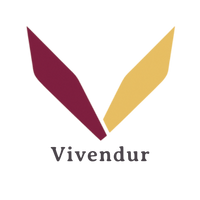"Founder Mode" in Health-Tech
- Azin Etemadimanesh
- Sep 6, 2024
- 3 min read
By Azin Etemadi, MD; Founder and CEO of Dione Health
I just read Paul Graham's essay on "founder mode" that everyone in tech world has been buzzing about. As I went through it, I couldn't help but nod along, seeing parallels with my own journey and observations in the health-tech world. But I also realized that for us in health-tech, founder mode takes on a unique flavor. Here's my take on how founder mode works for health-tech startups:

First off, let's address the elephant in the room: regulation. In health-tech, we're not just disrupting an industry; we're navigating a labyrinth of FDA approvals, HIPAA compliance, and clinical validations. The conventional wisdom says you need healthcare veterans to guide you through this maze. And sure, their expertise is valuable. But here's the thing - if you let them run the show, you'll end up looking like every other healthcare company out there. Slow, risk-averse, and about as innovative as a hospital gown.
So what does founder mode look like in health-tech? It's about maintaining that delicate balance between innovation and compliance. It's understanding the rules well enough to know which ones you can bend and which ones are set in stone.
For instance, when we were developing an Electronic Health Records platform, everyone said you need to follow the traditional concept of other EHRs like EPIC and create a mobile app similar to MyChart with a better security or user experience. But we found a way to change the meaning of storing personal health records outside of conventional EHR systems that can facilitate patient's access to their comprehensive medical records and integrate with already existing platforms. That's founder mode - finding creative solutions within the constraints of our industry.
Another aspect of founder mode in health-tech is breaking down silos. In traditional healthcare companies, you'll find the clinicians, the engineers, and the business folks all working in separate bubbles. But in founder mode, you're constantly fostering cross-pollination of ideas.
You can start doing weekly "health hacks" where you'd bring together doctors, data scientists, and even some patients to brainstorm solutions. It seems chaotic at first, with everyone speaking different "languages", but it can lead to some of most innovative ideas. That's something a typical healthcare manager would never do - too messy, too unpredictable. But for us, it's where the magic happens.
Founder mode also means being hands-on with the product, even as the company grows. I'm not an engineer but I made the first physical prototype of our device and wrote the first lines of codes and it's not a thing that stops when we expand the work force and grow. It keeps us connected to the real problems we're solving. When I mention this to some healthcare executives, they looked at me like I was crazy. "That's what you hire engineers for" they said. But how can you disrupt healthcare if you're not intimately familiar with the pain points?
Now, I'm not saying we ignore traditional healthcare wisdom altogether. We've learned to translate between "founder speak" and "healthcare speak". When a health system wants to see ROI projections, we provide them. But we also show them metrics they might not be used to, like user engagement rates and real-time health outcome improvements. It's about educating the market while we disrupt it.
One of the toughest parts of founder mode in health-tech is dealing with the pressure to conform. There's always someone - be it investors, partners, or even your own team - pushing you to do things the "established" way. It can make you doubt yourself. But I've learned that this doubt is often a sign you're on the right track. If everyone agrees with what you're doing in health-tech, you're probably not pushing hard enough.
Of course, founder mode doesn't mean being reckless. We're dealing with people's lives, after all. It's about finding that sweet spot where you're moving fast and breaking things, but not breaking people's trust or safety in the process. It's a high-wire act, but it's what sets apart the truly transformative health-tech companies from those that just digitize the status quo.
Looking ahead, I believe we're just scratching the surface of what founder mode can achieve in health-tech. As more of us share our experiences and strategies, we'll develop a playbook that balances innovation with responsibility, speed with safety.
So to my fellow health-tech founders out there: embrace founder mode. Trust your instincts. Challenge the norms. Be the kind of founder that makes healthcare veterans a little uncomfortable. Because that discomfort is the birthplace of true innovation in our industry.
And to the Paul Grahams of the world: keep writing about founder mode. But remember, for some of us, it's not just about building the next big app. It's about revolutionizing how we care for human health. And that's a whole different ball game.




Comments